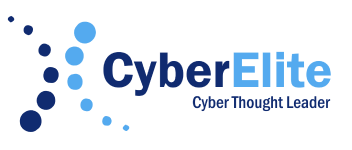As a business owner, you already know that the importance of cybersecurity cannot be overstated. Businesses of all sizes and industries are increasingly reliant on technology and data to operate efficiently, but this dependence can also expose you to a wide range of cybersecurity threats.
To combat these threats effectively, you need to stay ahead of the curve and one of the most promising tools in the cybersecurity arsenal is Artificial Intelligence (AI). According to HubSpot, 34% of companies currently use AI, and an additional 42% are exploring AI.
In this blog, we will explore how AI is transforming cybersecurity and provide insights for business owners, CIOs, and IT specialists on leveraging AI responsibly while safeguarding sensitive data.
The Cybersecurity Landscape
Cyber threats are constantly evolving, becoming more sophisticated, and adapting to new technologies. These threats include malware, phishing attacks, ransomware, and many more.
Recent reports show that 46% of all cyber breaches impact businesses with fewer than 1,000 employees. So regardless of business size, you must anticipate these threats and ensure that your organization is prepared to defend against them.

The Role of AI in Cybersecurity
Artificial Intelligence, with its ability to process vast amounts of data and identify patterns, is revolutionizing the way organizations approach cybersecurity. Here’s how AI is making a difference:
- Threat Detection and Prevention: AI-powered systems can analyze network traffic, user behavior, and system logs in real-time. They can identify anomalies that might signal a cyberattack, even before a human expert can. This early detection is crucial for preventing data breaches.
- Automated Responses: Once a threat is detected, AI can take immediate action to mitigate the damage. This might involve quarantining an infected device, blocking malicious IP addresses, or shutting down compromised accounts.
- Advanced Analytics: AI can perform advanced analytics on historical data to identify trends and predict potential future threats. This proactive approach helps organizations stay one step ahead of cybercriminals.
- Enhanced Authentication: AI can strengthen authentication processes by using biometric data, behavioral analytics, and device recognition. This makes it much harder for unauthorized users to gain access to sensitive systems.
- Phishing Detection: AI can analyze emails and detect phishing attempts more accurately than traditional email filters. It can spot subtle signs of phishing that might go unnoticed by human recipients.
- SIEM Integration: AI can integrate with Security Information and Event Management (SIEM) systems, enhancing their capabilities to detect and respond to threats effectively.
- Reducing False Positives: AI can significantly reduce the number of false positives generated by traditional security systems. This means your security team can focus on genuine threats rather than wasting time on false alarms.

Implementing AI in Cybersecurity Responsibly
While AI has enormous potential to bolster cybersecurity efforts, it’s essential to use it responsibly, especially when handling sensitive data like PII. Here are some key considerations for implementing AI responsibly:
- Data Privacy: Protecting PII should be a top priority. Ensure that all data collected and analyzed by AI systems are subject to rigorous data privacy and compliance measures, such as GDPR or HIPAA, depending on your jurisdiction and industry.
- Data Encryption: Implement robust encryption protocols to secure data both at rest and in transit. This adds an extra layer of protection for PII and other sensitive information.
- Access Controls: Restrict access to AI systems and the data they process. Only authorized personnel should be able to access and manipulate AI-related data and systems.
- Continuous Monitoring: Regularly monitor AI systems to ensure they are functioning correctly and not producing false negatives or false positives that could compromise security.
- Ethical Considerations: Be aware of the ethical implications of AI in cybersecurity. For example, AI algorithms should not discriminate against certain individuals or groups.
- Vendor Assessment: If you are using third-party AI solutions for cybersecurity, thoroughly assess the vendors’ security practices and ensure they align with your organization’s standards.
- Incident Response Plan: Develop a comprehensive incident response plan that includes AI-specific procedures for dealing with cyberattacks involving AI systems.

Putting PII Information into AI
Businesses often need to utilize PII for various legitimate purposes, such as personalizing customer experiences or improving products and services. When incorporating PII into AI systems, it’s crucial to strike a balance between leveraging its potential and safeguarding individual privacy. Below are some tips to help you do just that:
- Data Minimization: Only collect and use the PII necessary for the specific purpose at hand. Avoid excessive data collection, which can increase the risk of data breaches.
- Anonymization and Pseudonymization: Before inputting PII into AI, consider anonymizing or pseudonymizing the data to remove personally identifiable elements. This reduces the risk associated with handling raw PII.
- Consent and Transparency: If you collect PII from individuals, obtain their informed consent. Be transparent about how you intend to use their data, and provide them with options to control their data.
- Secure Storage: Store PII in secure, encrypted databases or storage systems. Regularly audit and monitor these systems for any vulnerabilities or unauthorized access.
- Data Retention Policies: Implement data retention policies to ensure that you do not retain PII longer than necessary. Once data is no longer needed, securely delete it.
- User Access Controls: Limit access to PII within your organization. Only authorized personnel with a legitimate need should be able to access and process PII.
- Regular Audits: Conduct regular security audits and assessments to identify and rectify vulnerabilities in your AI systems handling PII.

Utilize AI to Safeguard Your Business
Artificial Intelligence is a powerful ally in the ongoing battle against cyber threats. As a business owner, you have the responsibility to harness this technology to protect your organization’s sensitive data and ensure the security and privacy of your customers and stakeholders.
By implementing AI responsibly and following best practices for handling PII, you can strengthen your cybersecurity posture and stay ahead of cybercriminals in today’s dynamic digital landscape. Remember, cybersecurity is not just a technology issue; it’s a strategic imperative for modern businesses.
If you have questions about how to safeguard your business amidst ever-evolving cybersecurity trends, contact us today or click the link below to schedule a consultation.





